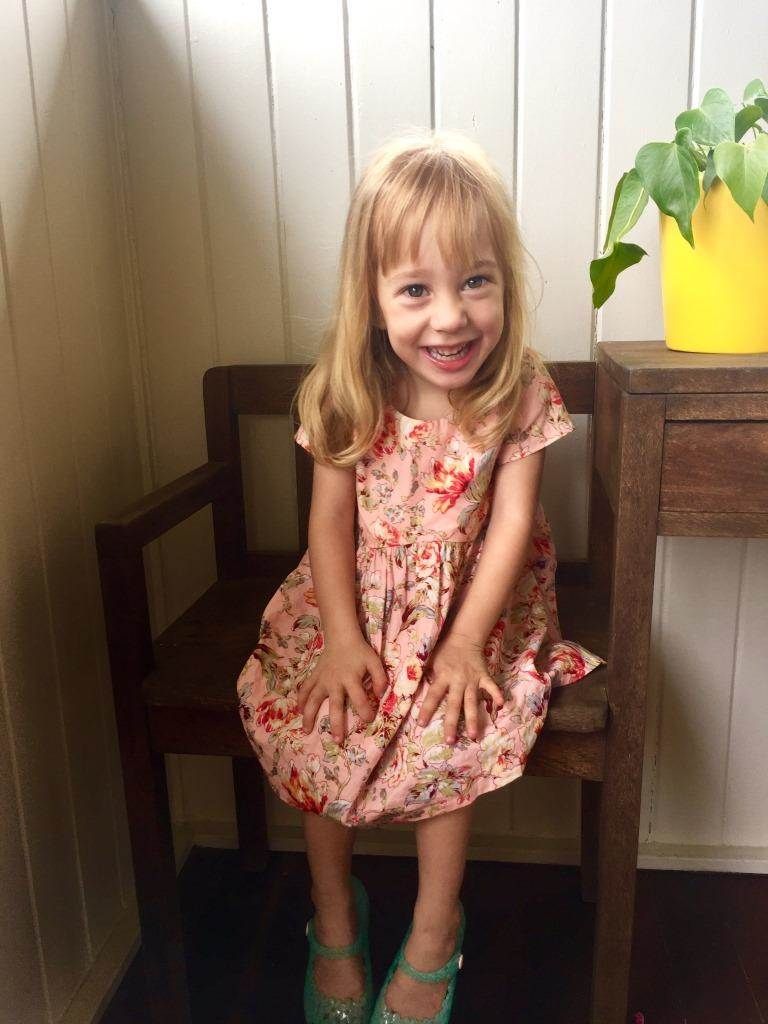Elke and Russ’ Mater little miracle, Essie

Elke and Russ were over the moon to welcome their second daughter Evelyn (Essie, as she is known to her family) into the world in 2013, but their journey to meet their daughter was fraught with ups and downs.
Elke had suffered several pregnancy losses and was desperate not to lose another baby, but at 15 weeks her cervix started to dilate and she had to have a cervical stitch put in to help prolong the pregnancy as long as possible.
“I just couldn’t bear to lose another baby. I was absolutely terrified of going through that again.”
Unfortunately at 22 weeks, Elke felt things “just weren’t right”―the cervical stitch had failed.
Along with her husband Russ and their seven-year-old daughter Maya, they relocated from Bundaberg to Brisbane where Elke was confined to bed rest at Mater Mothers’ Hospital.
“We were desperate to get to 28 weeks—which was the magic number in my head—as the doctors had told us from 28 weeks the baby’s prospects would look much better.”
Amazingly, Elke and Russ reached the 28 week milestone but that evening Elke felt that her baby hadn’t moved much.
She had developed an infection and from there it was all systems go with an emergency caesarean required.
Essie was born at 28 weeks and one day, weighing just over one kilogram.
She was rushed to Mater’s Neonatal Critical Care Unit (NCCU) where she was ventilated and spent nearly 13 days on respiratory support. Two months later, Essie was transferred to Bundaberg Base Hospital where she stayed for one week before Elke and Russ could finally take their baby girl home.
“I don’t think I really let myself believe Essie was going to come home until we walked through the doors of our house. As she got less and less tubes I felt more positive but I still felt like I was holding my breath the whole time.”
Despite all the wonderful advances of the past few decades, children who survive pre-term birth remain at high risk of serious disability. Babies like Essie, born 12 weeks premature, have 40 times the risk of developing cerebral palsy—an incurable condition which often results in life-long physical and mental impairment and can have a devastating impact on children and their families.
But there is hope thanks to Mater researchers Dr Paul Dawson and Dr Elizabeth Hurrion who are running a study—the first of its kind in the world—to correlate nutrient sulphate levels with developmental outcomes in pre-term infants.
During her pregnancy, Elke and Essie were among 100 mothers and babies who participated in Dr Dawson and Dr Hurrion’s study, and while Essie has recently been diagnosed with mild cerebral palsy, she is a “chatty, happy and incredibly active little girl who loves spending time with her sister Maya jumping on the trampoline and enjoys the beach”, says Elke.
To think that one in 16 pre-term babies face life-long physical and mental impairment, Elke tells us why she was so keen to take part.
“There is no way Essie would have survived without the care that she received at Mater, so I wanted to give back where I could, and the best way for me to do that was through research.”
Without amazing supporters like you, and brave volunteers like Elke and Essie, the research study would never have been possible. But this ground-breaking research has only just started.
It is only through the continuation of research that doctors can improve the odds for babies born prematurely. We need your ongoing support to help save Australian lives through medical research.
You can support life-changing research to help other babies like Essie grow into happy and healthy children by purchasing your Mater Prize Home lottery tickets today.

We would love to hear from you
We would love to know what you think about Mater Lotteries!
1800 067 066
All times displayed in your local timezone unless stated otherwise. Mater Foundation Ltd as trustee for Mater Foundation is registered as a charity with the Australian Charities and Not-for-profits Commission. ABN 96723184640. All prices are displayed in AUD.



